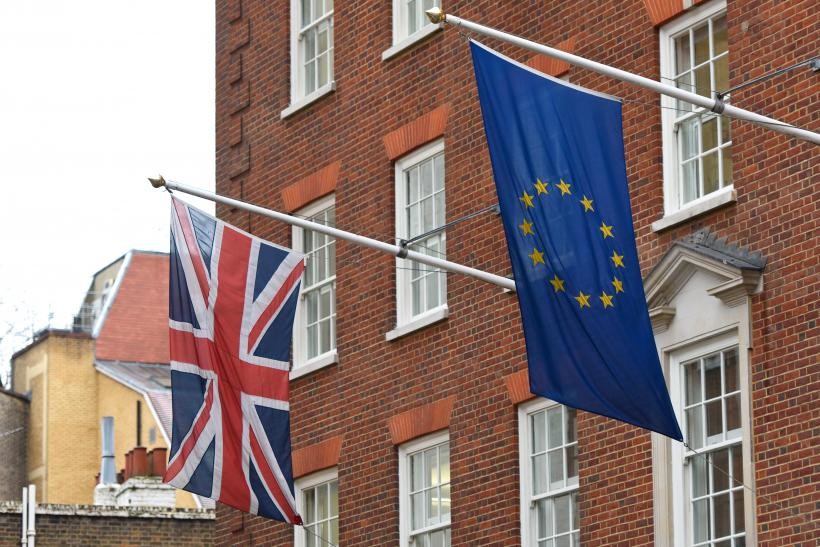What would Brexit mean for foreign workers and Britons in the EU?
Published on 22 june 2016What would Brexit mean for foreign workers and Britons in the EU?
While Europe as a whole would be affected by a British withdrawal from the European Union, the future for more than five million people will be even more directly impacted by the referendum result.
These are those people who are either EU-born and living in the United Kingdom, or UK-born and living elsewhere in the 28-member bloc.
According to UN figures, there are around 1.2 million British citizens living in another EU country while there are some 3.3 million non-British EU citizens living in the UK, under minimal restrictions thanks to the European Union's free movement principles.
What exactly would happen in the case of a "Brexit" is unclear: experts in European and international law cannot even say with any great confidence what the consequences of Brexit would be.
But who are these Europeans whose future potentially hangs in the balance? Where are they from and where do they live?
UK citizens living in the EU
Of the 1.2 million Britons living abroad, the largest communities are in Spain, Ireland, France and Germany. Many are retired and live on savings and UK pensions. It is estimated that the British government spent around 1.8 billion euros on state pensions to British retirees living elsewhere in the EU. The British National Health Service, which foots the bill for British pensioners' medical treatment in the EU, paid out just over 600 million euros to other EU countries in 2013/14.
Non-British EU citizens living in the UK
While expat Britons may favour starting new lives in the south and west of Europe, UK-bound EU citizens tend to come in greater numbers from central and eastern Europe. Poles for example make up the most numerous group of non-British EU nationals living in the UK (883,000 according to the UN).
So what could happen to British nationals living on the continent, and similarly EU citizens living in Britain, should the UK vote to exit the Union on June 23?
Much would surely depend on the post-Brexit deals and treaties struck between Brussels and London in the aftermath - and an immediate distinction is likely to be made between existing residents and potential new arrivals. Nothing would change overnight either, as the UK would remain a member of the EU while the official departure procedure was played out. Article 50 of the Lisbon Treaty, which David Cameron has said he would invoke, imposes a two-year deadline. Some "Leave" campaigners have suggested the process could take longer.
Existing residents' rights unaffected?
Politically, even in the event of severely damaged relations between the UK and the EU in the event of a Brexit, both sides may see an interest in moving to shore up the status and rights of existing residents. Certainly nobody seems to be envisaging mass deportations. Even the most vociferous "Leave" campaigner, the UKIP leader Nigel Farage, has said that EU migrants who have come to the UK legally will have the right to remain. The "Vote Leave" campaign says EU workers already in the UK
would have their "rights unaffected".
However, as far as the legal position of residents is concerned, there is less certainty. International agreements such as the Vienna Convention on the Law of Treaties have been cited as granting protection for citizens' acquired rights. But although pro-Brexit campaigners have argued that its application is clear, its relevance in Britain's case has been called into question. The convention has been said to refer to the rights of states rather than individuals.
France is not a signatory to the Vienna Convention, and legal experts have been quoted as saying it would not help Britons living in France in the event of a Brexit.
Looking for clues
Do several European countries which have existing arrangements with the EU, but are not inside the bloc, offer a guide in terms of the rules regarding rights to reside and freedom of movement?
As members of the European Economic Area (EEA), Norway, Iceland and Liechtenstein are subject to the EU's existing rules of freedom of movement to gain unfettered access to the EU's Single Market. That means their nationals have the right to live and work in the EU, and vice-versa.
Those inside the UK advocating a potential Brexit, often cite the EU's arrangement with Switzerland as a possible way forward. While not a member of the EEA, Switzerland also signed a freedom of movement treaty with Brussels to obtain unrestricted access to the Single Market. However, in 2014 the Swiss voted in a referendum to introduce quotas on EU migrants from 2017. Brussels responded by threatening to suspend its bilateral agreement with Bern should such quotas be imposed.
Should the UK decide to join the EEA, or something similar to what Switzerland has with the EU, Brussels may well demand that Britain too accept the free movement of workers. But would such a scenario be acceptable to a post-Brexit government, given how politically hot the issue of immigration has been during UK's EU referendum campaign?
For the moment, there still appears to be no clear idea as to what future immigration arrangements might be, unless London was somehow able to negotiate a separate deal.
"Nobody really understands the complexity of leaving the EU because no one has ever left the club", said Deloitte's head of UK immigration Jurga McCluskey as quoted in the Financial Times. "If we do leave, the landscape for immigration will change significantly - it won't be so much what we do but who we chose to work with. Who will those migrants be?"
Source: EuroNews


